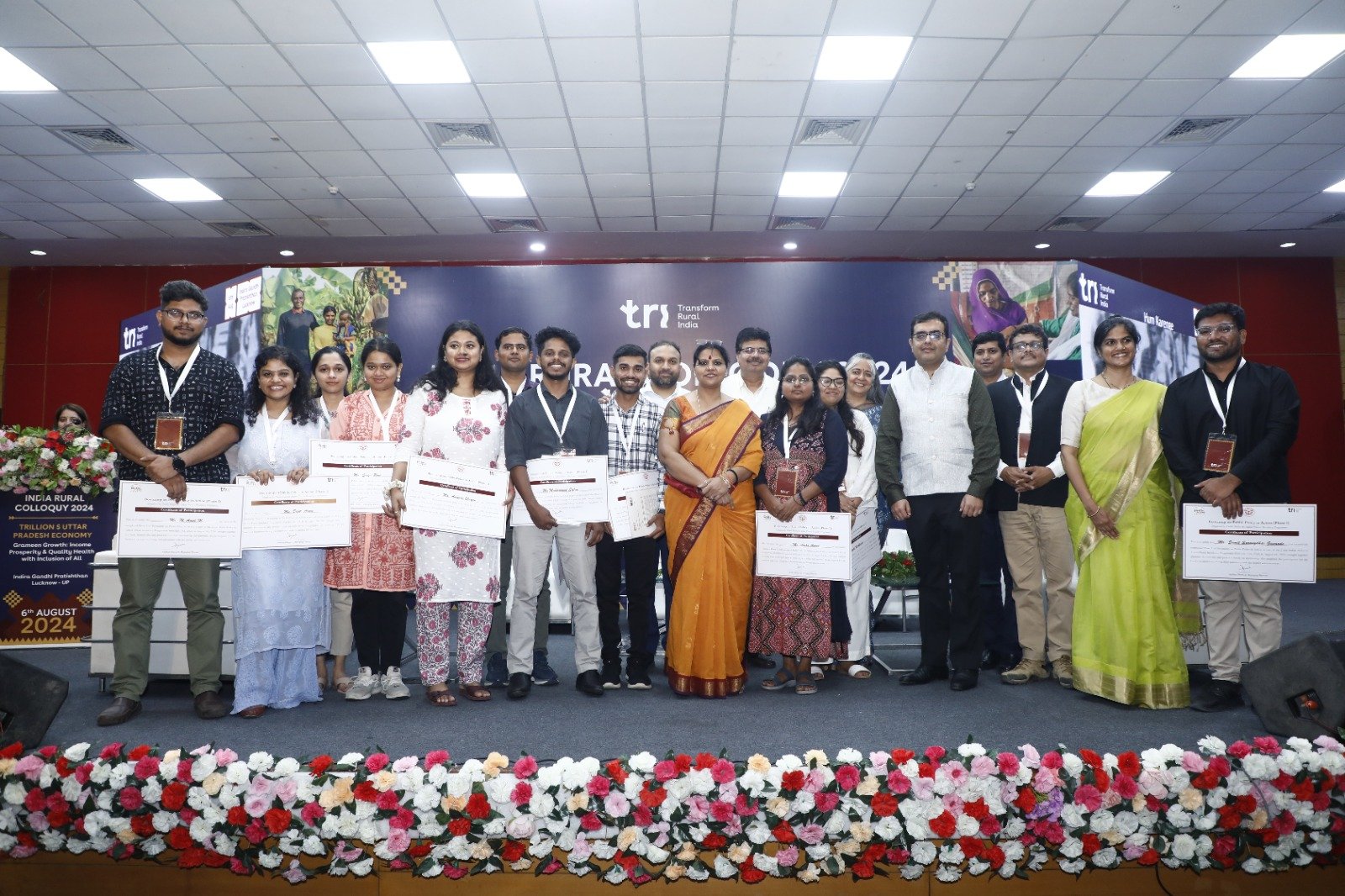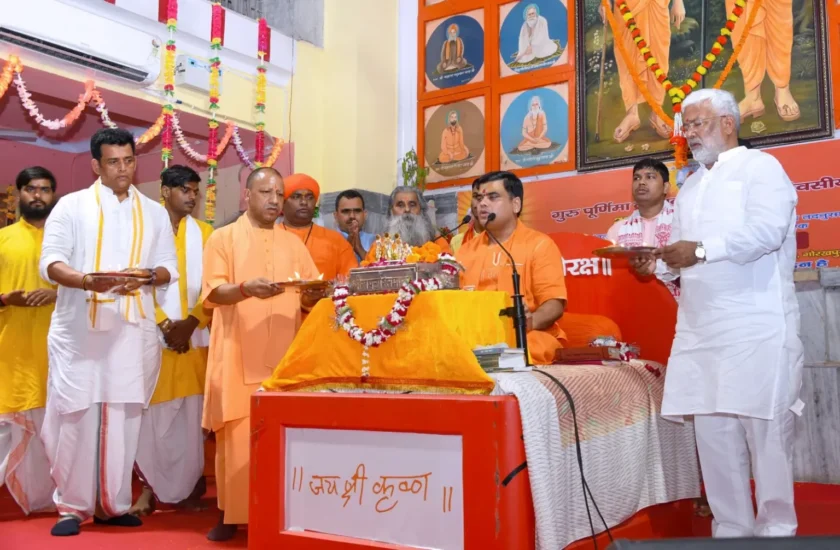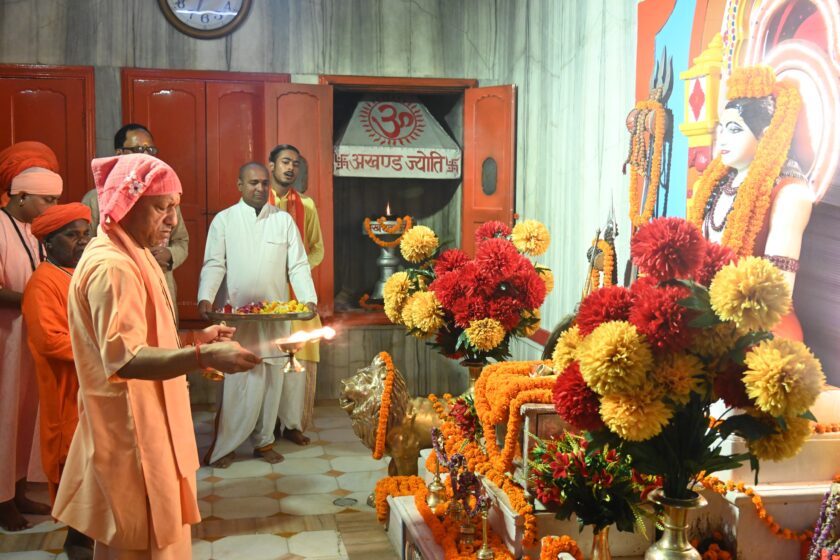Time to improve health services infrastructure and strengthen community participation for the improvement of health services, says Deputy CM Brajesh Pathak
Lucknow: The fourth edition of the India Rural Colloquy, held at the Indira Gandhi Pratishthan in Lucknow, underscored the importance of enhancing inclusivity in agricultural value chains (AVCs) to reduce farmers’ dependence on external factors and boost economic prosperity in Uttar Pradesh. Organised by Transform Rural India (TRI), the event also featured a panel discussion with experts and policymakers who highlighted the urgent need to diversify the workforce across various sectors, focusing on impactful and sustainable development.
A significant aspect of the Colloquy was a session on improving healthcare services in rural areas, initiated by a keynote address from Brajesh Pathak, Deputy Chief Minister and Minister of Medical Education, Health and Family Welfare, Govt. of Uttar Pradesh. He emphasised, “We are committed to strengthening public health infrastructure and enhancing community engagement in rural areas. In the near future, trained nurses from Uttar Pradesh will provide services across the entire country. New ideas are important and our government is committed to working on the innovative suggestions received at the India Rural Colloquy.”
The panel highlighted community-based models as a strategy for enhancing healthcare quality and stressed the necessity of collective action to ensure the benefits of development reach across all corners of rural Uttar Pradesh, paving the way for a more inclusive and prosperous state economy.
The session titled ‘Flourishing Rural Uttar Pradesh: Strategies for a Trillion-Dollar Economy,’ chaired by Agriculture Production Commissioner Dr. Devesh Chaturvedi, focused on the crucial role of women in agriculture and the need for engendering agricultural value chains (AVCs) to achieve the ambitious target of evolving UP into a trillion-dollar economy. He said, “The government is making significant investments in improving agriculture-related facilities like roads, electrification, irrigation, fertilizers, etc., but the challenge is to attract more private sector investment in agriculture, so that cold chain facilities and buyback arrangements can be made, reducing agricultural losses and allowing farmers to realise better prices.”
The panel also discussed the need to integrate technology in agriculture, promote sustainable farm practices, and recognise the critical role played by women in strengthening the agricultural sector. The required policy reforms will further support the welfare of women farmers and boost growth.
The session also featured insights from Nishant Gupta, Head of Sustainability at Flipkart Group and Social & Environmental Impact Advisor for Walmart.org, who emphasised organising women into FPOs significantly contributes to arranging mechanisation and value addition, ultimately increasing farm income. Access to and control over resources are key to fostering strong value chains. The session concluded with a call for strategic measures to empower women in agriculture, recognising their pivotal role in driving the state’s economic growth and achieving broader developmental goals.

An eminent panel discussion titled ‘Workforce Diversification: Imperative for Flourishing UP’ emphasised critical needs to diversify the workforce across various sectors in Uttar Pradesh. The panel highlighted innovative strategies aimed at enhancing workforce participation, particularly among underrepresented groups, as essential for driving comprehensive economic development within the state. Enriching the discussion, Manish Sinha, General Manager of SIDBI, emphasised the importance of inclusivity in the workforce, stating, entrepreneurs need not wait for the ideal situation to be promoted – they should start work now. Situations will improve simultaneously.
A Public Policy in Action (PPiA) fellowship supported by TRI, in partnership with the Office of the Chief Secretary, Govt. of Uttar Pradesh was also launched for 11 identified districts in Uttar Prades, with the support of TRI through Ms. Pinky Jowel (IAS), Mission Director-NHM. In the first phase of the fellowship, professionals posted in the 11 identified districts, under the supervision of the respective District Magistrate, were given appointment letters at the event. They will collaborate with local departments to provide necessary strategic support to improve progress under the priority programmes of the state government, especially around community health and family welfare.
According to Gaurav Misra, Director of Operations, Transform Rural India, “Ever since its inception in 2021, the India Rural Colloquy has become a premier platform for conversations and collaborative discussions around rural development. It’s a forum where real, actionable ideas come to the foreground, which goes a long way to building flourishing rural communities.”
About the India Rural Colloquy: The fourth edition of the India Rural Colloquy 2024, organised by Transform Rural India (TRI), is a series of conversations and events held from August 1-8 across Delhi, Madhya Pradesh, Uttar Pradesh, Jharkhand, and Chhattisgarh aimed at inspiring a rural renaissance. The India Rural Colloquy gathers diverse voices from civil society, government, and business to inspire ideas and actionable solutions for rural development. Hosted during the August Kranti week, the Colloquy echoes the spirit of change and action of India’s largest people-powered movement. Through panel discussions, debates, fireside chats, and roundtables, the fourth edition of the India Rural Colloquy addresses crucial topics from climate resilience, health and nutrition, youth employment, microenterprises, farm prosperity, gender inclusivity, and local governance, aiming to build a thriving rural India.





